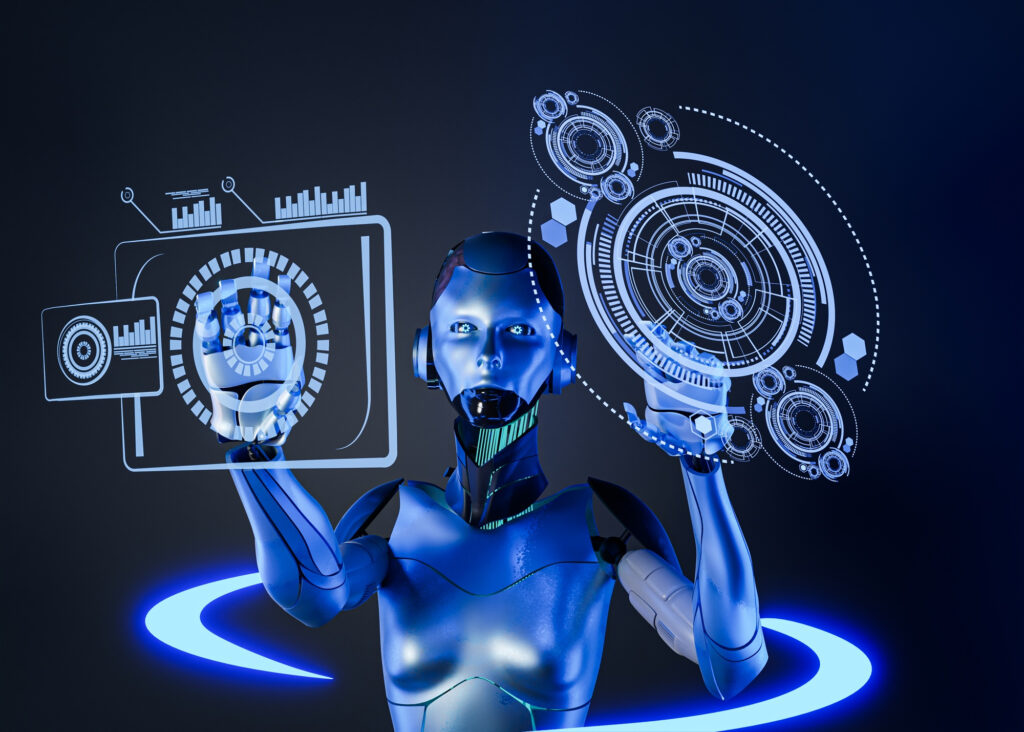Artificial Intelligence (AI) has made tremendous strides in recent years, transforming industries, enhancing productivity, and revolutionizing the way we interact with technology. While the potential benefits of AI are significant, it’s essential to acknowledge and address the potential dangers and ethical concerns associated with its rapid development and deployment. In this article, we will explore some of the key dangers of artificial intelligence and the steps needed to mitigate these risks.

1. Bias and Discrimination
One of the most pressing concerns in AI development is bias and discrimination. AI systems learn from data, and if the data they are trained on contains biases, the AI can perpetuate those biases. This can lead to unfair and discriminatory outcomes, particularly in areas such as hiring, lending, and criminal justice.
Mitigation: To address bias and discrimination, developers must carefully curate and evaluate training data, implement fairness measures, and continually monitor and audit AI systems for bias.
2. Job Displacement
The automation capabilities of AI have the potential to displace jobs in various industries. While AI can increase efficiency and productivity, it can also lead to job loss, particularly in sectors that rely on repetitive or routine tasks.
Mitigation: To mitigate the impact of job displacement, it’s crucial to invest in education and workforce development programs to help workers transition into roles that require skills that are less susceptible to automation, such as critical thinking, creativity, and emotional intelligence.
3. Privacy Concerns
AI systems often require access to vast amounts of data to function effectively. This raises significant privacy concerns, as individuals’ personal information may be collected, analyzed, and used without their knowledge or consent. Unauthorized access to sensitive data by malicious actors is also a concern.
Mitigation: Stricter data protection regulations, such as the General Data Protection Regulation (GDPR), and robust cybersecurity measures are essential to safeguarding privacy in the age of AI. Additionally, AI developers should prioritize data anonymization and user consent.
4. Autonomous Weapons
The development of autonomous weapons powered by AI is a cause for concern. These weapons have the potential to make deadly decisions without human intervention, raising ethical and humanitarian questions.
Mitigation: International agreements and regulations, such as the Convention on Certain Conventional Weapons, can help establish guidelines and limits on the use of autonomous weapons. It’s crucial for governments and organizations to work together to prevent the misuse of AI in warfare.
5. Lack of Accountability
As AI systems become more autonomous and complex, it can be challenging to determine who is responsible when something goes wrong. This lack of accountability raises questions about liability and the ability to hold individuals or organizations accountable for AI-related accidents or harm.
Mitigation: Establishing clear guidelines for AI system accountability and liability is essential. This may involve creating legal frameworks and standards to address issues of responsibility and liability in AI development and deployment.
6. Security Vulnerabilities
AI systems can be vulnerable to attacks and manipulation by malicious actors. Adversarial attacks, where subtle changes to input data can fool AI models, pose a significant threat. Additionally, AI-powered cyberattacks can be more sophisticated and harder to detect.
Mitigation: Strengthening cybersecurity measures and developing robust defenses against adversarial attacks are critical for safeguarding AI systems. Regular security audits and penetration testing should be conducted to identify vulnerabilities.
7. Existential Risks
Some experts have raised concerns about the potential for AI to reach a level of superintelligence, surpassing human capabilities. If not properly controlled, superintelligent AI could pose existential risks to humanity.
Mitigation: Research and development in the field of AI safety are essential to ensuring that advanced AI systems are designed with safety precautions, ethical constraints, and human values in mind. Ongoing research into AI alignment and control is crucial.
Conclusion
The development and deployment of artificial intelligence hold incredible promise, but they also come with significant dangers and ethical challenges. It’s essential for society, governments, organizations, and AI developers to address these concerns proactively. Ethical AI development, transparency, accountability, and international cooperation are key to mitigating the dangers associated with AI. By taking these measures, we can harness the power of AI for the benefit of humanity while minimizing the risks it poses. The responsible and ethical development of AI is not just a choice but a necessity in shaping a safer and more equitable future.